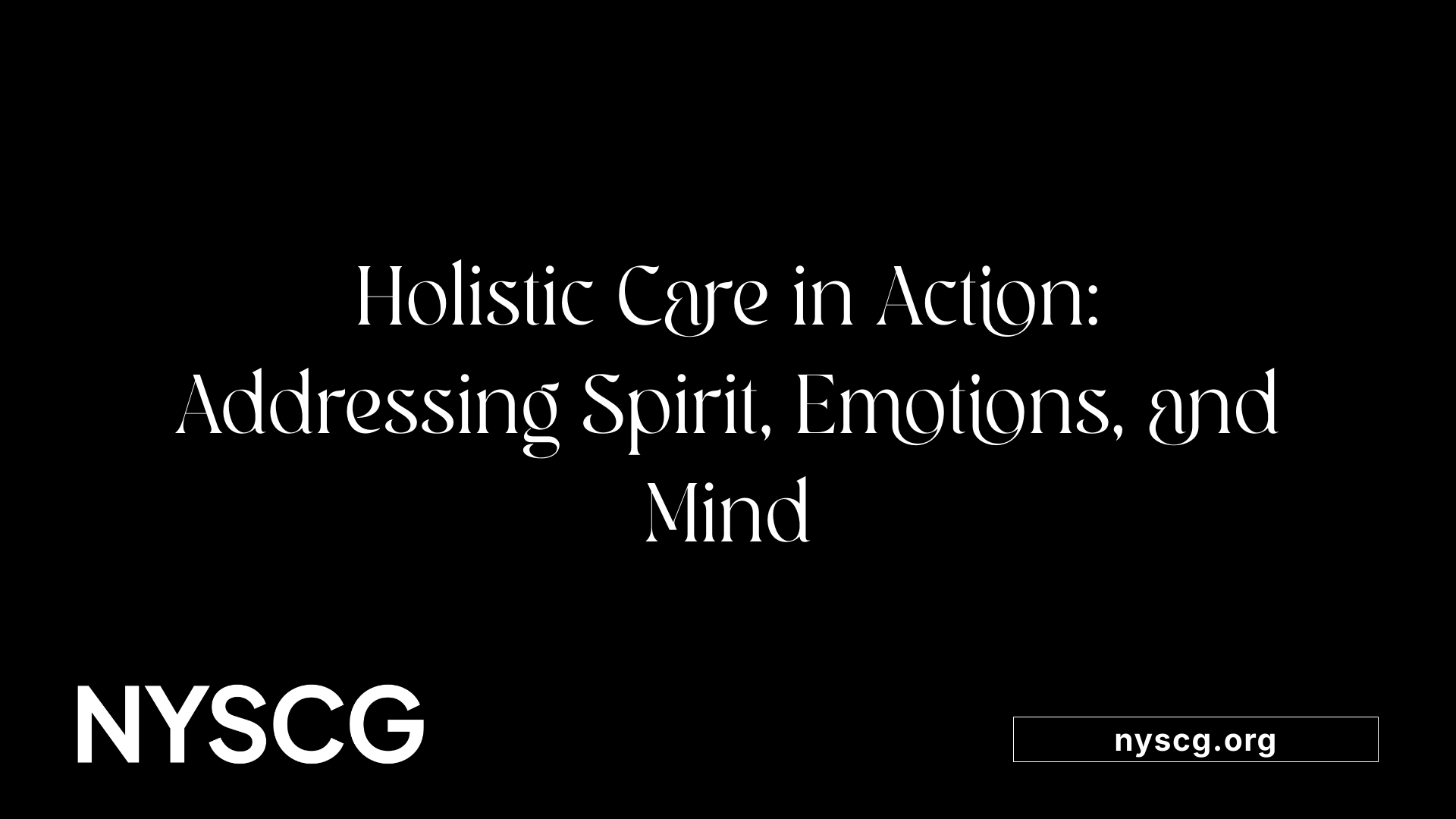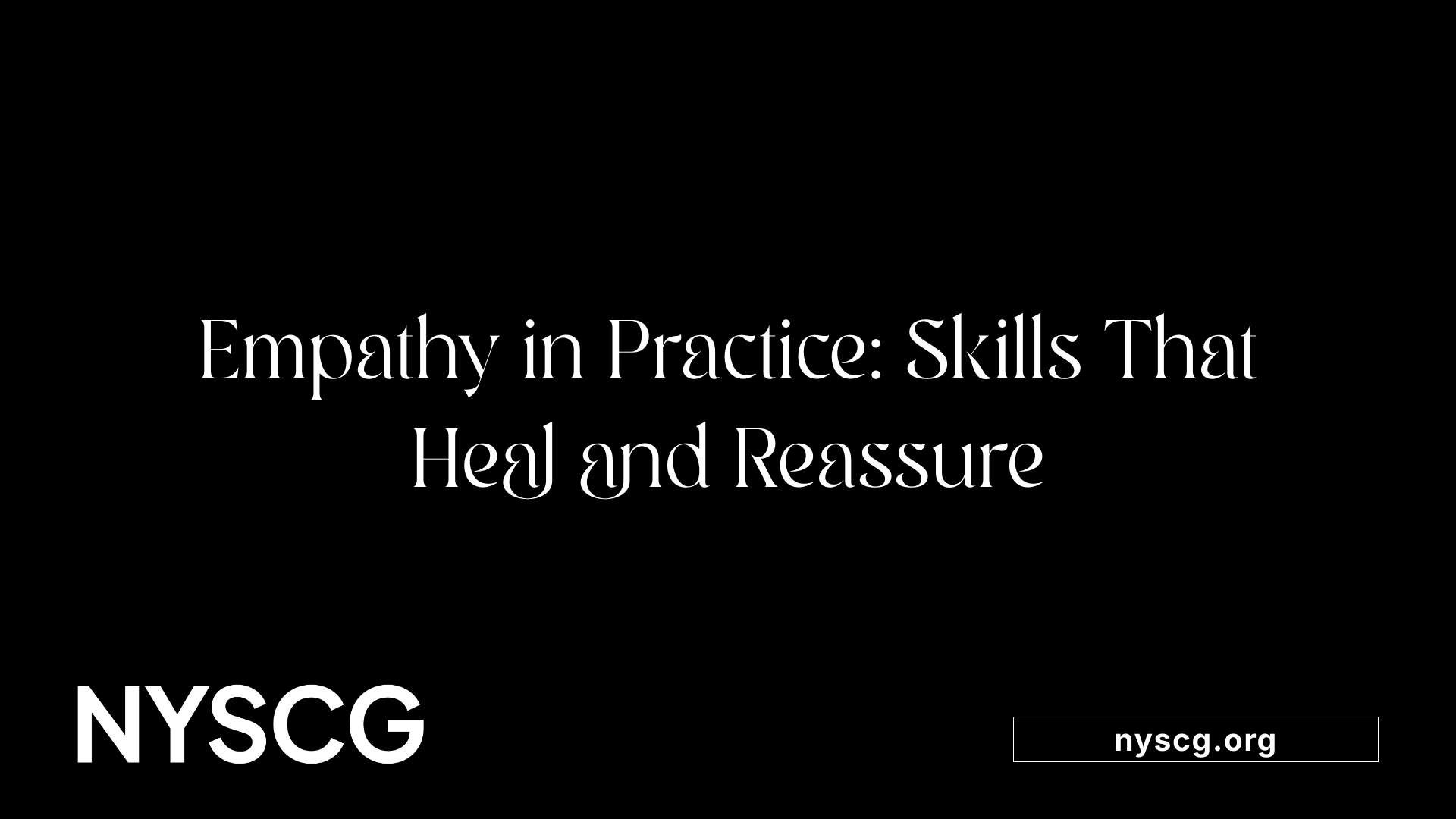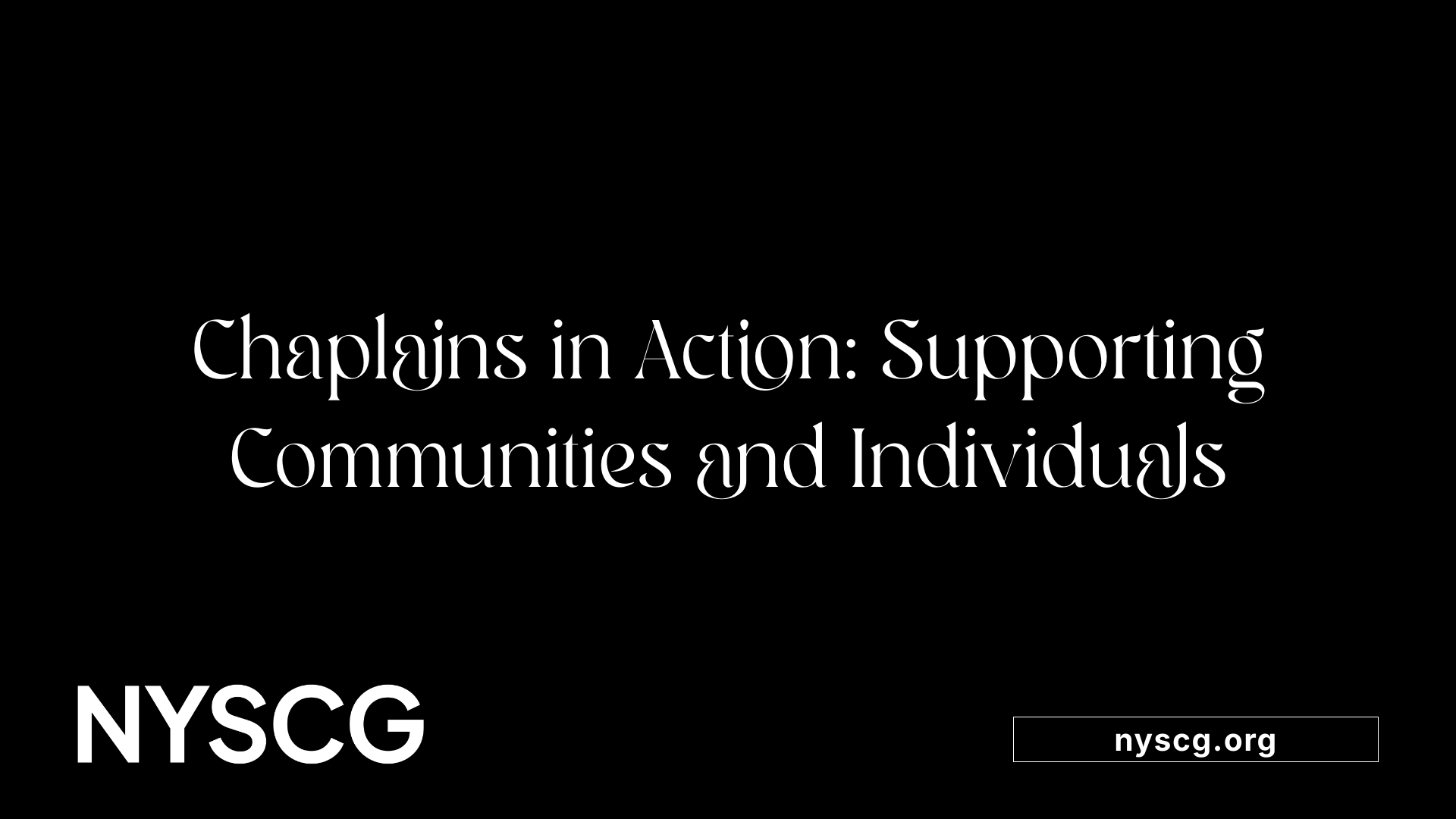Do Chaplains Do More Listening or More Counseling?


Chaplains serve as vital figures across diverse settings—from hospitals and military units to workplaces and community centers—straddling the delicate line between active listening and structured counseling. This article explores how chaplains integrate these roles, emphasizing their core focus on compassionate presence and spiritual care, and examining whether they do more listening or counseling in their daily work.

Chaplains serve in a variety of settings such as hospitals, military bases, prisons, schools, and disaster zones, where they provide vital spiritual and emotional support. Their primary role is to help individuals face life's challenges by offering a compassionate listening presence and guiding them through complex emotions and spiritual struggles.
One of their central activities is conducting counseling sessions that focus on an individual's spiritual journey, needs, and personal beliefs. They listen attentively to foster trust and understanding and respond with empathy, never offering quick fixes but helping individuals find their own paths toward healing.
Chaplains also facilitate religious rituals and ceremonies such as prayer, sacraments, or memorials, tailored to the person's faith tradition or personal comfort. They examine ethical concerns and help people navigate moral dilemmas in life, offering moral support grounded in their understanding of spiritual principles.
In times of crises—whether it's grief due to loss, trauma from disasters, or emotional upheavals—they act as a steady, calming presence, often described as a

Chaplains play a vital role in supporting the whole person—spiritually, emotionally, and mentally—across many settings such as hospitals, military, workplaces, and community centers. They provide more than just compassionate listening; their work includes spiritual guidance, religious rituals, and crisis support that helps individuals find meaning amid suffering.
One of their main tasks is to interpret and address spiritual distress, which can arise from illness, loss, or trauma. By doing so, they help individuals explore hope, purpose, and a sense of connection to the sacred or significant. Chaplains create sacred spaces—places where stories can be shared, grace can be experienced, and healing can begin.
In medical settings, chaplains work closely with healthcare teams, providing insights into patients' spiritual needs that influence care decisions. They conduct spiritual assessments through dialogue, listening intently to understand each person’s unique faith background, moral concerns, and emotional state. This personalized approach fosters trust and allows chaplains to develop tailored support plans.
Beyond individual care, chaplains also serve as mediators and advocates. They facilitate communication between families and medical staff, ensuring that cultural and religious considerations are respected. Their presence helps ease ethical dilemmas and provides comfort during difficult conversations.
In addition to clinical settings, chaplains are involved in education, training staff about spiritual issues, and promoting mental health awareness. They address broader concerns like grief, relationship struggles, and moral questions, often helping individuals access mental health or community resources.
Their holistic approach encourages healing by addressing all aspects of distress—physical, emotional, and spiritual—emphasizing hope, resilience, and dignity. Ultimately, chaplains aim to nurture spiritual well-being, fostering an environment where individuals can find meaning and peace during life's most challenging moments.

Chaplains utilize a broad set of skills to provide comprehensive spiritual and emotional support. Central to their work is active listening, which involves giving full attention, maintaining eye contact, and observing non-verbal cues. This practice helps establish trust and fosters a safe environment where individuals feel truly heard.
Empathetic communication is another fundamental skill, allowing chaplains to respond with compassion and understanding, which is crucial in building a supportive relationship. Cultural competence also plays a vital role; chaplains are trained to respect diverse faith traditions and cultural backgrounds, ensuring inclusive and personalized care.
Spiritual assessment techniques are employed to understand a person's beliefs, needs, and spiritual injuries. These are often conversational rather than rigid questionnaires, allowing for relational and meaningful dialogue that informs care plans.
In crisis situations, chaplains provide immediate support through crisis intervention methods, addressing issues such as grief, loss, or emotional trauma. They also lead grief support sessions, guiding individuals through mourning and recovery.
Beyond counseling, chaplains conduct religious ceremonies and rituals aligned with the individual’s faith and preferences. They offer pastoral guidance, helping people find purpose, hope, and resilience during difficult times.
Collaboration with healthcare providers, legal professionals, and community organizations allows chaplains to deliver holistic care. They often navigate complex ethical and moral concerns, advocating for the individual's spiritual needs while maintaining confidentiality.
Overall, chaplains combine theological insights with psychological and social skills. This integration enables them to support personal growth, moral reflection, and emotional healing across various settings, including hospitals, military, workplaces, and community spaces.

Chaplains play a vital role in many environments by providing tailored spiritual, emotional, and mental support to those in need. Their activities are adapted to the specific context, whether in hospitals, military bases, prisons, schools, or community organizations.
Across these settings, chaplains serve as compassionate listeners, offering guidance through active listening and empathetic presence. They conduct religious or spiritual rituals, such as prayers, rituals, or sacraments, aligned with the individual’s belief system or personal preferences.
In times of crisis or grief, chaplains provide comfort and bereavement support, helping individuals process loss, trauma, or major life transitions. They also facilitate spiritual development and moral reflection, assisting people in exploring meaning, purpose, and hope.
While respecting all faiths and belief systems, chaplains maintain neutral, inclusive approaches that avoid proselytizing. They collaborate closely with healthcare professionals, law enforcement, educators, and social workers to offer comprehensive care.
Overall, the core roles involve active listening, offering hope, and fostering resilience among diverse populations. They help individuals navigate difficult ethical dilemmas, moral injuries, or personal hardships, aiming to promote well-being and spiritual strength.
| Setting | Primary Activities | Additional Support Focus |
|---|---|---|
| Healthcare | Spiritual assessments, counseling, rituals | Addressing spiritual distress, grief, and end-of-life support |
| Military | Religious services, counseling, resilience training | Supporting faith practices, moral injury, combat stress |
| Prisons | Spiritual guidance, counseling, moral repair | Rehabilitation, hope-building, moral development |
| Education | Pastoral care, mentoring, community engagement | Well-being, moral guidance, emotional resilience |
| Community/Organizations | Crisis response, advocacy, education | Social support, diversity engagement, mental health awareness |
Chaplains serve as vital connectors between personal belief, life challenges, and community or institutional support, embodying compassion through active listening and tailored care.

A chaplain’s ability to listen effectively is fundamental to their role in providing spiritual and emotional care. Their listening skills are centered on active listening, which means giving complete attention to the person speaking, understanding both the words and the feelings behind them. This involves more than just hearing; it includes engaging with verbal cues and observing non-verbal signals like body language and facial expressions.
Chaplains use a variety of techniques to build trust and foster open communication. These include maintaining eye contact to show attentiveness, using affirmations to acknowledge feelings, paraphrasing what the individual says to ensure understanding, and asking thoughtful questions that invite deeper reflection. This approach encourages individuals to speak honestly and openly, especially in moments of crisis or vulnerability.
Empathy plays a crucial role as well. Chaplains practice genuine empathy, striving to connect with the speaker’s experience without judgment or interruption. Patience and a calm presence help create a safe environment where individuals feel valued and heard.
Through their trained listening skills, chaplains help people express their emotions, explore their beliefs, and find meaning during difficult times. This involves more than just passive hearing; it’s about being fully present and attuned to both spoken words and unspoken feelings.
Chaplains often participate in training programs, such as those offered at Rose Training Australia, which emphasize developing compassionate listening abilities. Such training enables them to support individuals in a way that can positively impact their mental wellbeing, foster community trust, and facilitate personal and spiritual growth.
In essence, the listening skills of a chaplain are a vital tool for providing comfort, understanding, and guidance, helping individuals navigate their struggles with dignity and hope.
Ultimately, the work of a chaplain embodies a sacred balance between listening and counseling. While active listening forms the foundation of trust and understanding, structured counseling and spiritual guidance are integral to their holistic care approach. The question 'Do chaplains do more listening or more counseling?' defies a simple answer; rather, it highlights their versatile role in fostering healing, hope, and resilience through both heartfelt listening and compassionate intervention. Their ability to adapt and respond fluidly to individual needs makes chaplaincy a uniquely profound practice of serving the whole person—body, mind, and spirit.
All you need is the will to make the world a better place.
New York State chaplain group inc. is a tax deductible organization with a federal tax Id number 92-383-4921